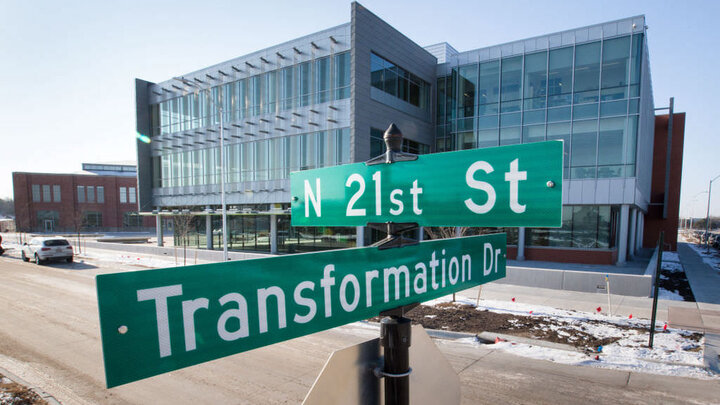World-Herald editorial: Right vision for NU's Innovation Campus project

Innovation Campus is the University of Nebraska’s commendable effort to create a world-class scientific research park on the former Nebraska State Fairgrounds.
Rather than blindly copying what’s being done in, say, Massachusetts or North Carolina, Innovation Campus is rightly building on Nebraska’s proven strengths.
The point isn’t gargantuan size. Instead, it’s quality and specialization, using sound long-term planning and a phased approach to construction.
Using a mix of $25 million in public funds and more than $100 million in private contributions, the project is focusing on fields in which Nebraska already has a strong reputation.
A key example: food science.
Innovation Campus will open its 178,000-square-foot Food Innovation Center this summer. Scientists with Omaha-based ConAgra Foods, one of the world’s leading food companies, will be among those making use of the center’s cutting-edge laboratory and research facilities.
Joining them will be faculty with the University of Nebraska-Lincoln’s Food Science and Technology Department, respected for its top-flight scientific work. The department is relocating to Innovation Campus from UNL’s East Campus.
A second example: plant science.
The campus’s Greenhouse Innovation Center, at 45,000 square feet initially, will feature research capabilities available in few other comparable centers. The technology will greatly advance researchers’ ability to identify and study types of food crops that display beneficial characteristics such as drought tolerance.
Innovation Campus also will include the Nebraska Innovation Studio. There, interdisciplinary teams — coming together in ad hoc fashion depending on the individual project — will use a variety of equipment to carry out customized manufacturing projects.
A key aim is for students and faculty to learn about entrepreneurial and manufacturing processes, enabling potential business startups.
Nebraskans will rightly ask: Will UNL’s undergraduate students have opportunities to join in the high-level food- and plant-science research?
The answer from Dan Duncan, the Innovation Campus executive director: “Absolutely.”
The private companies Innovation Campus has talked to in its recruiting efforts emphasize “access to students,” Duncan told The World-Herald. “They want pipelines for talent.”
Duncan says that at the same time, he’s receiving strong interest from undergraduates looking forward to participating in the research work.
A plus for Innovation Campus is that its board of directors includes private-sector leaders who provide practical guidance in regard to business needs.
Other positive factors: the impressive burst of development in Lincoln’s Haymarket (quality-of-life factors are important in recruitment, Duncan notes) and Innovation Campus’s use of renewable energy for heating and cooling.
Innovation Campus is a topic members of the Nebraska Legislature will consider this session as part of a $20 million package of major NU projects. The Innovation Campus portion is $4 million.
Whatever lawmakers decide on the budget, one thing is certain: Innovation Campus is a major, forward-looking initiative that can raise NU and Nebraska to a new level.
